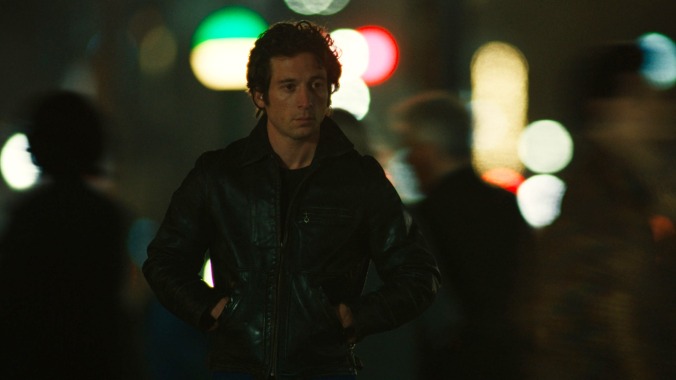I Hope ‘Deliver Me From Nowhere’ Inspires More Men to Go to Therapy
Though occasionally clichéd, the biopic remains a testament to what makes Springsteen a storyteller worth listening to—and how therapy changed his life.
Photo: 20th Century Studios EntertainmentMovies
Few three-word phrases have gone from meme to meaningless faster than “men need therapy.” But in Scott Cooper’s deeply heartfelt take on Bruce Springsteen’s early dances with his demons, Deliver Me From Nowhere, the sentiment actually stands—mostly because it’s the working-class rock god’s honest truth.
Deliver Me From Nowhere has been hyped since the first trailer. Hollywood’s favorite sad boy (aka Jeremy Allen White) as music’s favorite counter to toxic masculinity? Instant Oscar bait. At this point, the leading man of the moment starring as a tortured artist is a tried-and-true formula for trophies (see Timothée Chalamet as Bob Dylan, Austin Butler as Elvis Presley, Joaquin Phoenix as Johnny Cash, etc., etc.). And as fatigued as I am by the plug-and-play of it all, this latest iteration works, too.
For Springsteen, becoming The Boss™ was simple: his electric stage presence and proclivity for empathetic storytelling made him a phenomenon. But actually liking the person on the other side of the acclaim wasn’t as easy—his lifelong struggle with self-hatred has been the subject of innumerable songs, biographies, and his own 2016 memoir, Born to Run. His father’s family was plagued by mental illnesses—from agoraphobia to hair-pulling disorders to alcoholism—that went largely undiagnosed or undiscussed, and were all exacerbated by poverty. As a result, Springsteen had a strained relationship with his father, who, he revealed to Vanity Fair in 2016, was never able to say “I love you” before his death in 1998.
“As a child, it was simply mysterious, embarrassing, and ordinary,” Springsteen wrote of witnessing his family’s issues. After the massive commercial success of The River, Springsteen’s fifth studio album, a then 31-year-old Springsteen was forced to navigate sudden fame and confront what came next—professionally, but also psychologically. This is where Deliver Me From Nowhere, based on Warren Zane’s biography, begins.
-

-

-

-

-

-

-

-

-

-

-

-

-

-

-

-

-

-

-

-

-

-

-

-

-

-

-

-

-

-

-

-

-

-

-

-

-

-

-

-








































